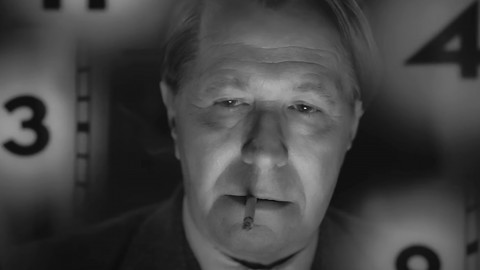
– Main image: clubbers enjoying Party For No Reason at The Standard. Credit: Kyann-Sian Williams
London’s underground club scene has long fostered some of Britain’s most underrated talent when it comes to creating banging parties with big cult followings. Depending on your interests – whether you love jazz and want to vibe out every Monday at Orii Jam, or jump about to the skittish beats of drum and bass, house and more at Keep Hush – there are many niche places to have fun around London.
Many of the city’s clubbers find their tribes at these events, tucked away in venues as disparate as swanky hotel rooftops and industrial, subterranean venues. But, despite the range of events on offer, there’s always been a problem – especially for POCs, women, queer and non-binary people – in finding parties and spaces where you can truly, and safely, let your hair down.
In a city where we champion diversity, it’s surprisingly hard to find nights that reflect that representation musically. Hop into any club on the Soho strip and you’ll likely hear a higgledy-piggledy collection of pop tunes, new and old, while the continued rise of rap’s popularity has produced an outpouring of club nights designed for those fans. If you’re looking to dance the night away to other genres, though, you’ll have to dig much deeper.
Luton-born Sikh-Punjabi Sukhchain Sohal is a huge fan of commercial club hits, but also the energetic bhangra he grew up around, inheriting his love for the genre from his older brother. There has only been one time when he’s heard the latter played on a night out – at a club night called Milkshake while he was at university at Aston University in Birmingham. That experience finally made Sohal feel seen in a club setting.
“Being a Sikh who wears a turban makes me distinctively different visually; therefore when growing up I never really fitted in and got used to [that],” the content creator (and avid clubber) tells NME. But going to university in Birmingham, he entered the underground club circuit, finding small parties with his friends that showed him the power of his culture.
Sohal praises multi-genre DJ and fellow South Asian Yung Singh, who has been a force for cultural change in London’s club scene. Known more for their Asian-fusion mixes blending popular underground club genres (dancehall, house, trap, amapiano and more), he’s a part of a wider collective called the Daytimers with Gracie T and DJ Priya, who are forcing space for Asian music in the everyday club scene.
“Yung Singh [performing] was extremely inspiring, and the events [I found] definitely helped me fit into spaces that I thought I was alien to previously,” Sohal explains. “I felt like there was a big shift after the Yung Singh presents Daytimes Boiler Room [event], which allowed the first [edition of the] South Asian festival [Dialled In] to happen.”
The 28-year-old also credits Singh with revitalising the kind of songs from his culture that gets played at parties: “He’s been able to replace the overplayed ‘Mundian To Bach Ke’ by Panjabi MC with an arsenal of Punjabi bangers, and also provided inspiration of how these could be blended into the contemporary club hits.”
DJing can have a powerful effect on a crowd, but getting behind the decks can be daunting – especially if you don’t fit the status quo. For women, in particular, there are difficulties in being noticed or being taken seriously, as Brixton multi-genre DJ EllaDHC found when she diverted her career as a photographer to learn how to blend dancehall tunes with timeless ‘90s and ‘00s feel-good classics, invoking mind-boggling reactions every time.
Initially inspired by “a comment that the scene needs more female dancehall DJs”, Ella has rapidly gained notoriety within the underground circuit. After practicing throughout the pandemic, she’s already opened for seasoned DJs like Shaun Sky and AAA, and packed out Boxpark Croydon with the prolific music platform, re.cess (known for its viral No Signal Radio spawned in the pandemic that she has also DJed for). Soon to stand toe-to-toe with her peers, she hopes to fill a void for fans looking for more female selectors at their raves and show that aspiring DJs of all genders can be taken seriously. Her first opportunity to do this, of course, is at this year’s Glastonbury Festival with the DJ collective Sensational Sounds.
“I have received a lot of support – even some unexpected support,” she tells NME. “I do [see more women being on the decks] but not enough. It is still a very male-dominated industry and selective [with regards to] who you know rather than your talent. But there have been communities made [such as female-led live events company, Set Pace] that focus on inclusivity, so within those spaces, it is definitely safe to DJ as a woman. Anywhere else? It varies – I’ve had men assume they can come on the decks during my set and play because they’re men. That’s very weird.”
All that changes in a womxn-only event. Considering the increased visibility of gay bars across central London – especially Soho – it’s shocking that there is currently only one lesbian-only bar in the city. After being sacked from that club, SHE Soho, event founder Teddy Edwardes started up her own womxn-only event, LICK. The monthly night is designed to give womxn – no matter what orientation – a safe haven and has become renowned for its fun, friendly atmosphere.
“I enjoy seeing people having a good time and feeling comfortable dressing and behaving how they like. Having no men completely changes the energy,” says Edwardes, before detailing her own troubling clubbing experiences. “So many venues still majorly fail at [being inclusive]. And a lot of gay bars in London don’t like to let women in, full stop. I’ve been told I have to kiss my partner before as ‘proof’ of why I should be allowed in, and even been told that they’re only letting gay men in because lesbians ‘cause trouble’. The last time I went to a club, a man pulled me by my hair across the room to try and buy me a drink – when I complained, it was me that had to leave.”
That’s why it’s super important to Teddy to create a space where womxn will be safe and able to come as they are. With the success of LICK’s events in London, she’s expanding her vision across the country, “launching in 10 cities in the UK and Ireland over the next few months”. Hopefully, LICK’s carefree culture will thrive and create more clubbing hubs that give many more womxn the chance to enjoy a safe night out.
“There have been communities made that focus on inclusivity. Within those spaces, it is definitely safe to DJ as a woman” – EllaDHC
The infamous and raunchy sweat-fest of Pxssy Palace, meanwhile, offers a similar safe space for POC in London wanting to attend queer events. Dubbed the beating heart of the city’s queer scene, the event’s founders and DJs Skye Barr and Nadine Noor unapologetically make space in the club scene for Black and Indigenous queer women and trans and non-binary people. If the night sounds familiar, you might remember its viral moment when it came under fire for charging cis-gendered heterosexual men £100 for tickets to one party, while BIPOC queer women and trans and non-binary people paid much cheaper admission fees.
Regardless of the ingenious ticketing system designed to ensure their mission – providing a safe clubbing experience for BIPOC queer womxn and non-binary people – is met all the time, Pxssy Palace has carved out its position as a central hub for queer culture in the UK. Barr and Artois are really stepping up for the underrepresented BIPOC LGBTQIA+ community and their events have drawn big names, like New Orleans’ loud and proud rap star Big Freedia, who celebrated International Women’s Day in 2020 with the DJing duo.
There are still challenges ahead for the inclusivity of London’s club scene. Queer non-binary clubber Zinzi Caine says they feel like “a lot of the POC queer places to party have been whitewashed”, undermining their aims of creating places for marginalised communities to feel comfortable. “It’s to such a degree that it almost strips their integrity away,” they tell NME.
“It’s quite easy to make friends when you dress nice and have high-energy” – Zinzi Caine
“There are very few places to party with POC queers that aren’t also catered to white queers too. Places such as Pxssy Palace and OriiJam have been overtaken by white people that don’t really respect the fact that it’s a space to centre POCs, which makes many of us uncomfortable.”
Caine, who is in their 20s, has been clubbing in London since they turned 18 and initially found their tribe at the Ace Hotel Shoreditch, which is now permanently closed due to the coronavirus outbreak. There, they and their friends would attend free events, like the self-proclaimed “secret favourite party” *Birdnoise*, in its snug basement.
“It was a community I’d never experienced before,” they say, reminiscing on their early experiences. “I was quite nervous to meet new people and find my way around but I found out it was quite easy to make friends when you dress nice and have high energy. It was eye-opening to see how many other young Black people were out and about like me.”
When they first started going out, though, they struggled to find many events where they felt represented, a feeling that still persists sometimes: “I absolutely did not feel represented in any way. It was extremely heteronormative at most times; homophobic actually. There was a great divide between self-expression and sexuality back then. I didn’t feel like I fit in with the straightness of it all.”
“I want [the future of clubbing] to be community and culturally-led. [I’m] hoping monetary exploitation is minimal” – Sukhchain Sohal
Caine hopes that the future of clubbing in the city features more “community” and “culture-based” events, allowing spaces to maintain importance to the groups they were created for. “[Events need to be] way more inclusive [in] detail [and focus on] more community, love, and open-mindedness, with less fear of judgment and harassment,” they explain. In addition, they’re wary of the potential elitism that could spring from the introduction of guestlist-only parties and how that could impact the scene. “Those events prioritise clout rather than free tickets that everyone can [access],” they tell NME. “Sometimes it’s beneficial but, most of the time, it’s just unfair on most people.”
Sohal, meanwhile, is all for the cultural significance of spaces being the main focus of events – as long as the communities involved aren’t subjected to exploitation. “I want it to be community and culturally-led; [I’m] hoping monetary exploitation is minimal,” he says. “Unfortunately, as these spaces and collectives start to strive, it becomes desirable for institutions and gatekeepers to take their slice. I think the initial step has occurred where communities have been built from the ground up. The next circuit looks to be more diverse and collaborative across communities.”
While there’s still a way to go for London’s clubbing scene to be absolutely inclusive, promoters, DJs and clubbers alike are all taking steps in the right direction. The continued growth of the city’s party circuit shows there is a place in the clubbing world for everyone, giving hope that one day soon there’ll be a time where everyone – regardless of gender, sexuality, or race – can get sweaty in total harmony.
The post “It’s a community I’ve never experienced before”: how clubbing got more inclusive appeared first on NME.







